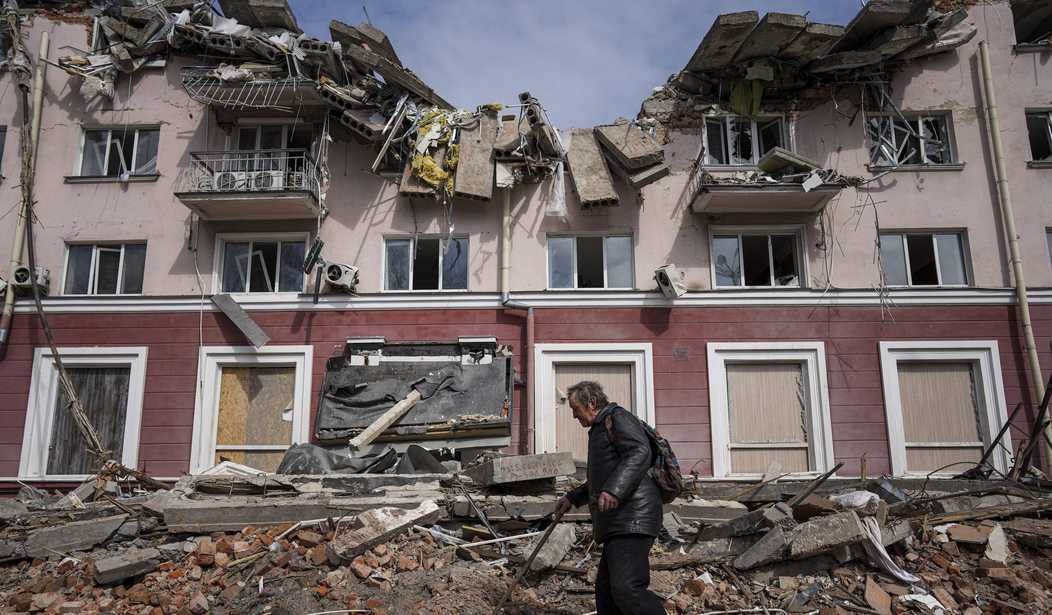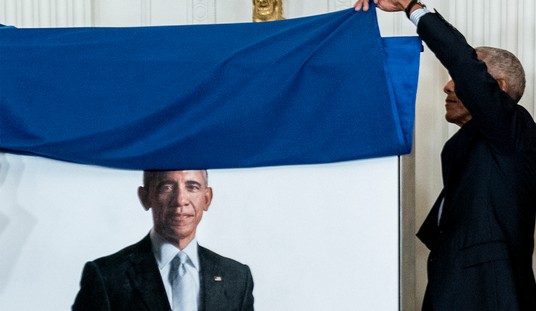For more than a year, Washington has known that the kind of "victory" that Ukraine's President Volodymyr Zelenskyy desired was not going to happen. Zelenskyy wanted to reclaim "every inch" of Ukrainian territory that Russia captured, including Crimea, which Russia took in 2014. By the beginning of this year, it was clear that Ukraine didn't have the men or the weapons to retake occupied territory.
That means that negotiations are now the only way to salvage Ukraine's sovereignty. That didn't stop Democrats from referring to those who suggested negotiations as "defeatists" or "Putin-lovers." Now even Democrats can read the writing on the wall and are supporting the idea of talks.
Since the war started, Donald Trump has advocated negotiations. Could he have headed off the war if he had been in office? It's an unanswerable question as all counterfactuals are. It's a certainty that Ukraine would not have resisted very long if he had been in office given his reluctance to supply Ukraine with the kind of support Biden gave them.
That's all in the rearview now. The big question is how to get Putin and Zelenskyy to the negotiating table.
Both sides are exhausted. While casualty figures are unreliable, the general consensus is that Russia has lost about 600,000 men killed or wounded while Ukraine has suffered about 400,000 casualties.
Russia has begun to grind down Ukrainian forces in Eastern Ukraine while using its air superiority to destroy Ukraine's power grid. The damage to the grid, railroads, ports, and other infrastructure will cost the West (us) in excess of half a trillion dollars.
Russia hammered Ukrainian energy facilities in a massive aerial attack on Friday that President Volodymyr Zelenskiy said was one of the largest yet on the ailing grid and evidence of why Kyiv needed more Western support before any peace with Russia.
Russia's 12th major assault on the energy system this year damaged power facilities in several Ukrainian regions and forced authorities to impose even longer electricity cuts for millions of civilians, the national grid operator said.
With winter temperatures currently around -6 degrees Celsius, the strikes increase pressure on Ukraine at an unpredictable moment with Donald Trump set to return to the White House next month, vowing to end the war quickly.
"This is (Russian President Vladimir) Putin's plan for 'peace' – to destroy everything. This is how he wants 'negotiations' – terrorizing millions of people," Zelenskyy said on X. "A strong reaction from the world is needed: a massive strike – a massive reaction."
That's not going to happen. The jostling has already begun among NATO and EU allies of Kyiv to see who will get in line first to trade with Russia again when sanctions are lifted.
Russian President Vladimir Putin will fight as long as Ukraine wants to oppose him. Trump is not going to abandon Ukraine immediately. There's enough military aid in the pipeline for Ukraine to keep fighting for several months.
Trump reportedly told Zelenskyy that he wouldn't cut aid off immediately and that he would continue to support Ukraine so it could continue to defend itself. But there will be no more hi-tech offensive weapons like ATACM missiles or M-1 tanks.
So what will the "end game" in Ukraine look like?
Ukraine will give up territory. It might be able to trade the Russian territory that it's occupying in the Kursk province for an equal slice of Ukraine land that Russia occupies. Beyond that, Putin isn't going to budge. He has no incentive to, and there's nothing Zelenskyy has that he wants.
Ukraine is going to want "guarantees" from Putin. Good luck with that, Mr. Z. Ukraine is also going to want to join NATO. Again, it's not going to happen.
Zelesnkyy is going to have to live with Putin's "guarantees" to end the war. If he's smart, Putin will make the "no invasion" guarantee especially grand. Since he's never going to abide by it, he can say anything about leaving Ukraine alone that he wants.
Under no circumstances will Trump offer any guarantees to Ukraine if Russia invades again. Trump will scold NATO and the EU and suggest that they carry the burden of defending Ukraine themselves. NATO nations, with a few exceptions in Eastern Europe, are still resisting spending 2% of the budget on defense.
The U.S. should continue selling weapons to Ukraine. If it has the courage to defend its country, the U.S. should see that whatever it wants to buy, it can acquire.
Otherwise, until Russia's next invasion of Ukraine, Kyiv will struggle to survive.










